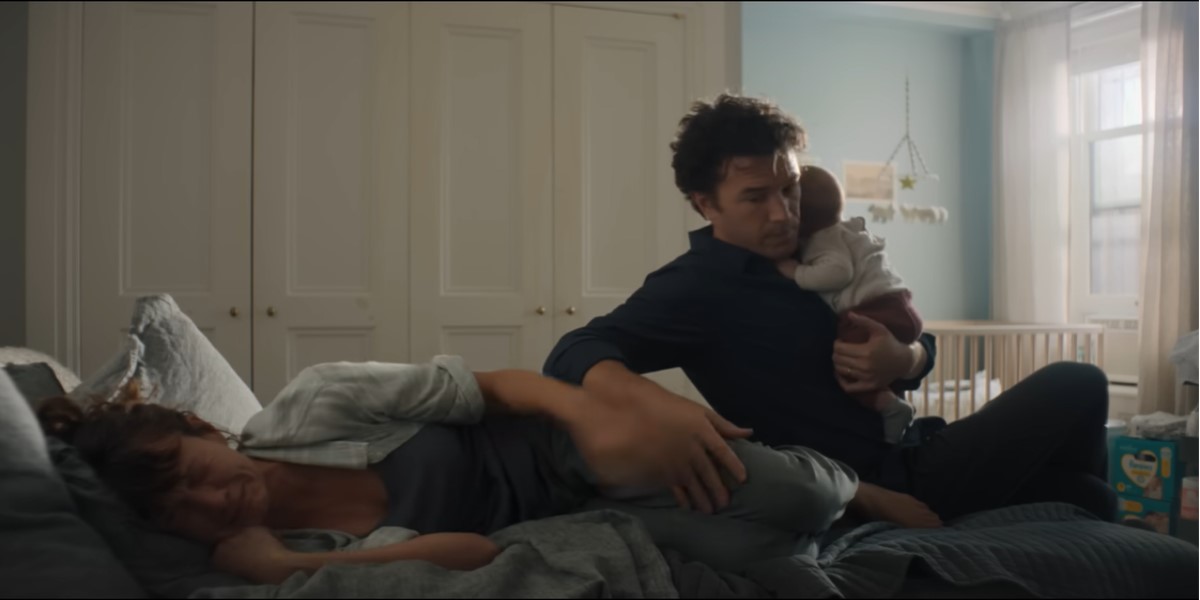The Refreshingly Modern Marriages of "She Said"
 Friday, November 18, 2022 at 9:41PM
Friday, November 18, 2022 at 9:41PM By Ben Miller

There are plenty of things to like about Maria Schrader’s She Said, but one of the most impressive things is the relationships of the main characters. So many heavy, important things happen in the film, the marriages of Jodi Kantor (Zoe Kazan) and Megan Twohey (Carey Mulligan) gets lost in the shuffle. It’s so rare, it’s almost revolutionary. It shouldn’t be ignored
Over a number of months, Kantor and Twohey investigate Harvey Weinstein’s numerous instances of sexual harassment of his female employees. This consists of business trips, long hours, and calls in the middle of the night or weekends. The film goes out of its way to show both women continuing to be mothers to their children and wives to their husbands. Here’s the refreshing part: it’s no big deal...
Why is it out of the norm? You’ve seen that scene 100 times. A hard-working woman comes in after working long hours and her exasperated husband exclaims, “You’re too wrapped up in your job…you’ve forgotten your family!” She responds, “This is important!” Back-and-forth, back-and-forth. He says something with veiled misogyny, she eventually apologizes, the film continues.
In She Said, there isn’t the slightest hint of that happening. The husbands take care of the kids as equal partners. When they come home, there are no snide comments about working too much.

At one point, Jodi comes home to her husband (Adam Shapiro), and asks about his day. He complains a bit about the kids and his job, then they go about their night. No fights and no arguments about gender roles. In another scene, as Jodi is focusing on her computer, he makes a joke about having an affair to see if she is listening. The joke continues, they playfully laugh, life goes on.
The Twohey household is no different. Following the birth of their child, Megan is having what appears to be post-partum depression. Her husband (Tom Pelphrey) calmly holds the baby and attempts to calm her down. When she gets back to work in order to cope, there is no argument or blowout. As the investigation deepens, Megan gets calls in the middle of the night or out on walks with the baby. She takes the calls and returns to life. No eye rolls, no snide comments.
Why is this such a deviation from the norm? It is an extremely reasonable response for a husband to understand the pressures of his wife’s job. Especially when that job is an investigative journalist at one of the most prominent media outlets in the world. Not to mention, both women are in established relationships. Both partners know how much the women love (and are good at) their jobs. This is how it should be.

The monstrous treatment of women by a man in power is at the forefront of the story, but the gentle respect of women is counterpointed without ever being overtly broadcast. No one pops in to applaud the men for seeing their partner as equals. It’s not something you should have to point out. It shouldn’t be a mind-blowing development. Men should treat their wives with ample respect and share the responsibilities of their relationship.
It’s been well documented: representation is important. These two women are independent, tenacious, hard-working, and intelligent. They’re also married. The two do not have to be mutually exclusive. Each relationship is built on respect and understanding. The representation of a healthy relationship is vital, especially in a story like this.
Does it have to be this refreshing? Can’t this just be the norm where a man respects a woman for who she is and what she does? The film doesn’t make a big deal of out it, and it shouldn’t be. Unfortunately, it still is a very big deal for Hollywood movies.
 She Said
She Said 



Reader Comments (1)
I well remember 40 years ago sitting in a darkened theater as the opening shot of The Big Chill showed Harold bathing his young son while Sarah was taking a phone call. Fathers then who invested in child care at that level were suspect. Yet, the film became revolutionary for treating the task as commonplace, even banal.